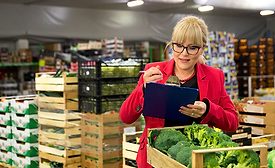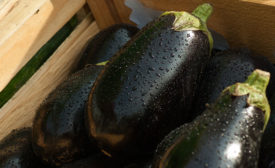Inspection
Advanced Technology for Improving Virtual Audits and Inspections
Technology advances continue to enhance remote evaluations, but the format must overcome inevitable challenges
April 18, 2022
Alternative Thinking about Violations
Looking at violations based on the corrective or preventive actions required can assist inspectors with proper citation
February 22, 2022
The Regulatory Inspection: A Tremendous Opportunity to Build a Relationship
Tips on keeping the peace yet making your point
October 18, 2021
Lessons Learned from 1937
Some lessons are just as relevant today as on the day the events occurred
October 18, 2021
Responding to FDA Letters
Tips on how to answer regulatory communications
January 15, 2021
Never miss the latest news and trends driving the food safety industry
eNewsletter | Website | eMagazine
JOIN TODAY!Copyright ©2024. All Rights Reserved BNP Media.
Design, CMS, Hosting & Web Development :: ePublishing











